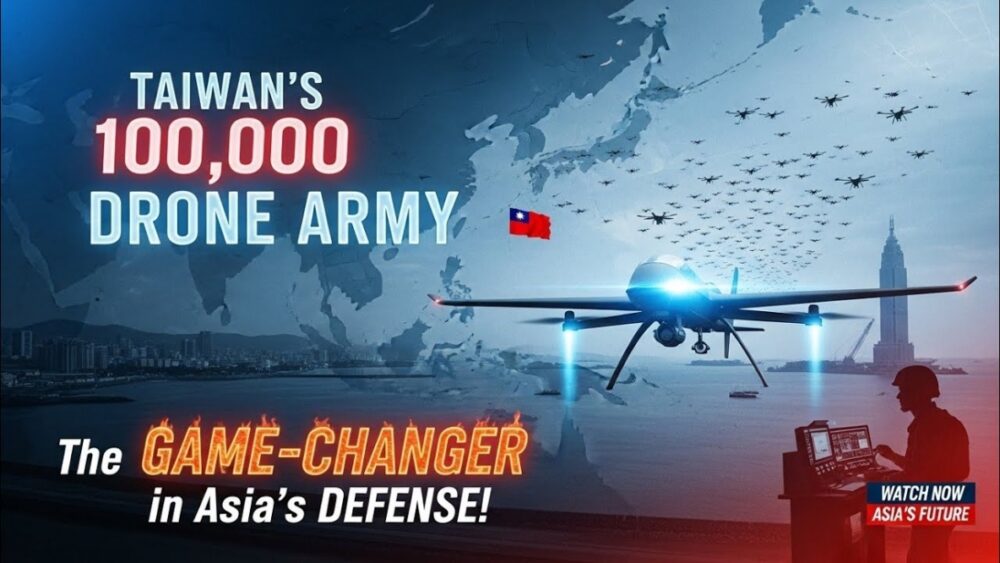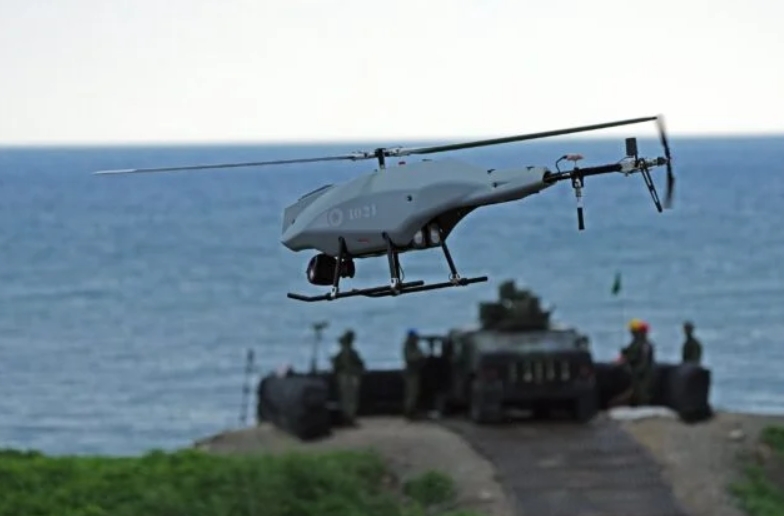Taiwan has announced a new large-scale procurement plan to acquire over 50,000 unmanned aircraft systems (UAS), making it one of the largest drone acquisition programs in its history. Combined with a recent Ministry of National Defense order of nearly 49,000 units, total drone demand now exceeds 100,000 units—effectively securing domestic production capacity for at least the next five years.
The announcement was made during an industry briefing on July 29, jointly hosted by the Executive Yuan’s Space Program Office and the Armaments Bureau. Officials stated that this expanded procurement is part of a broader strategy to enhance national resilience and strengthen Taiwan’s distributed drone fleet capabilities to support infrastructure protection and defense.

According to Taiwan’s Executive Yuan, the additional 50,000 drones will complement the military drone systems already ordered and support both civilian and defense missions, including the surveillance of energy and transportation infrastructure. The move reflects a growing emphasis on layered drone capabilities across the island.
The Ministry of National Defense has already confirmed the purchase of 48,750 drones across five major categories, including micro surveillance, attack, and medium-range reconnaissance platforms. Officials noted that the military portion of the budget alone is expected to exceed NT$50 billion.
Taiwanese manufacturers are racing to respond. Leading drone producer Thunder Tiger Technologies has confirmed its intent to bid across all five categories of defense drones and expressed interest in supplying the newly added 50,000 systems under the Executive Yuan’s parallel procurement plan.

Another key UAS player in Taiwan, Coretronic Intelligent Robotics Corporation (CIRC), has announced plans to expand production and target global markets, including manufacturing defense-grade drones for U.S. and European clients. The company stated that geopolitical tensions and global competition in autonomous systems have made this a turning point for the global drone supply chain.
The Armaments Bureau hosted the drone industry briefing at the 202 Factory in Nangang, welcoming over 400 participants. Due to space constraints, each company was allowed only two representatives, yet the venue was packed. Attendees included drone manufacturers, electronics firms, composite material suppliers, and communication technology companies, all seeking detailed information about system specifications and project requirements.
The Ministry of National Defense confirmed that supplier selection will follow a “multi-award” procurement model, meaning contracts may be awarded to several vendors, each responsible for part of the total order. This approach aims to accelerate delivery, ensure supply chain resilience, and foster industrial competition.

(Taiwanese soldier with FPV drone)
Industry insiders note that the scale of this procurement—both in quantity and budget—marks a turning point for Taiwan’s military industrial base. If executed as planned, the combined orders from the Executive Yuan and Ministry of National Defense will fully occupy Taiwan’s domestic drone production lines for the next five years.
While many technical details remain classified, experts expect the procurement to include drones with autonomous flight control, encrypted communications, and swarm capabilities tailored for Taiwan’s mountainous terrain and urban centers. Local manufacturers are likely to be given priority in this massive procurement. If the program proceeds smoothly, it could secure production output for domestic companies over the next five years.

Coretronic, which won contracts in the first round of bidding, has hinted it will participate again. Other companies like Thunder Tiger and GEOSAT Aerospace & Technology Inc., which lost out in previous rounds, are preparing new bids. EGAT and Taiwan UAV Company are evaluating whether to participate in the upcoming round.
Taiwanese drone manufacturers have long expressed frustration over the slow development of the local UAS sector and have called for more government support. With limited domestic demand, many shifted focus to international markets. Now, the government’s announcement of a 100,000-unit procurement plan is seen as a game-changer—offering a lifeline to Taiwan’s struggling drone industry.
